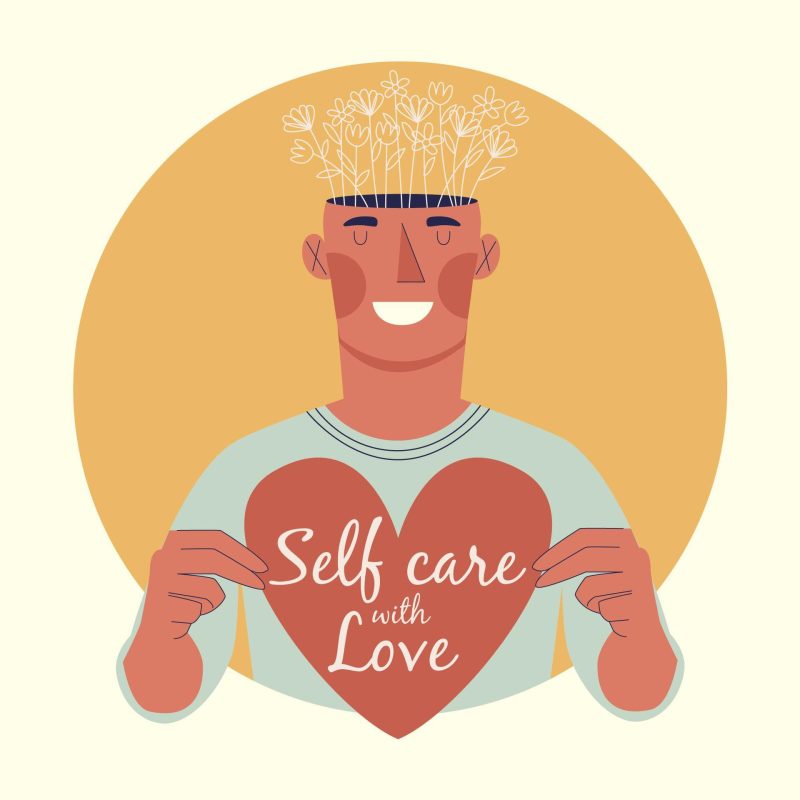Cultivating Self-Love for Well-being
By Bill Benson · May 1, 2023

Summary: The article explores the concept of loving yourself more and its significance in enhancing mental health and overall well-being. It emphasizes the importance of self-love in building resilience, improving relationships, and fostering authenticity. Self-care practices and challenging negative self-talk are highlighted as crucial steps in cultivating self-love for well-being. The article also suggests shifting focus from pursuing happiness to engaging in meaningful experiences aligned with personal values. By prioritizing self-love for well-being, individuals can establish a foundation for improved mental health and a more fulfilling life.
Self-Love or Selfish?
Self-love is a concept many have been chattering about for years, but is it essential, and what does it look and feel like in action?
As a therapist, I have seen firsthand how self-love can improve a person’s mental health and overall well-being. While it’s important to care for others, it’s equally important to care for ourselves. Research has shown that loving ourselves more is crucial for happiness and life satisfaction.
One of the most significant benefits of self-love is that it helps us build resilience. When we love ourselves, we have a more positive outlook on life, which helps us cope with stress and adversity. In fact, humanistic psychologist Abraham Maslow believed individuals could only reach their full potential with this strong self-esteem.
Unfortunately, many people struggle with the idea of self-love for well-being. They might feel guilty or selfish for prioritizing their own needs over others. However, loving oneself is crucial for building healthy relationships. It helps us make stronger connections because we aren’t seeking validation from external sources. Having the confidence to communicate who we are and how we feel promotes more authentic interactions. This transparency lets others know and appreciate us, promoting communication that then reinforces our self-esteem.
Building Emotional Muscle
Cultivating self-love for well-being takes time and commitment. It means prioritizing your own needs and setting boundaries with others. Self-care is one way to cultivate self-love. Engaging in activities that promote physical, mental, and emotional well-being is essential. This can include exercise, healthy eating, getting enough sleep, and doing things that bring us joy and relaxation.
Another important aspect of cultivating self-love is challenging negative self-talk. Self-criticism can be incredibly damaging to our self-esteem. So recognizing when we’re engaging in negative self-judgment and challenging it with more positive and compassionate self-talk is essential.
Stop Chasing Happiness
It’s also important to understand that happiness isn’t the only goal in life. Pursuing happiness can be counterproductive because it can lead to a never-ending cycle of cravings and disappointment. Instead, we should focus on cultivating experiences that bring a sense of purpose and fulfillment to our lives.
Research has shown that people who focus on meaningful experiences have better mental health and well-being. So instead of chasing happiness, we can focus on activities that align with our values and interests. This could be anything from taking an art class to volunteering at a local organization.
Approaching experiences with mindfulness and presence is also essential. By fully engaging in the present moment, we can deepen our sense of connection and purpose. As philosopher Aristotle once said, “The ultimate end of human action is happiness.” By cultivating meaningful experiences, we can build resilience and well-being that sustain us through life’s journey.
Putting It All Together
When we cultivate self-love for well-being, we create a foundation of self-love that benefits us and those around us. Practicing self-compassion and cultivating meaningful experiences can help us recognize our worth and treat ourselves with kindness and compassion. So let’s make self-love a priority in our lives!
References:
Baumeister, R. F., Vohs, K. D., Aaker, J. L., & Garbinsky, E. N. (2013). Some key differences between a happy life and a meaningful life. The Journal of Positive Psychology, 8(6), 505-516. doi: 10.1080/17439760.2013.830764
Fredrickson, B. L. (2001). The role of positive emotions in positive psychology: The broaden-and-build theory of positive emotions. American Psychologist, 56(3), 218-226.
Maslow, A. H. (1943). A theory of human motivation. Psychological Review, 50(4), 370-396.
Neff, K. D. (2003). Self-compassion: An alternative conceptualization of a healthy attitude toward oneself. Self and Identity, 2(2), 85-101.
